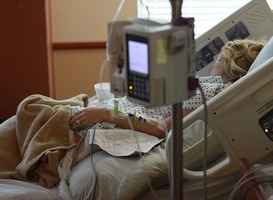“Loss of consciousness, or brief loss of consciousness, accounts for 3 percent of all emergency room visits worldwide,” says neurologist Roland Thijs. Usually it is a relatively harmless cause, namely fainting, but sometimes it is more serious. It is often not possible to make a diagnosis in these patients. The tilt test can help with this. However, Thijs warns, tilting tests are not always necessary and should therefore not be performed blindly.
New guidelines provide guidance
Neurologists have therefore come up with unambiguous guidelines for the tilt test. These provide clear frameworks for when the research should and should not be used and provide guidance for interpretation. “It is important to look at the context of each patient and consider it”, says Thijs.
“In the tilt test, the patient lies on a bench that is tilted vertically. This can induce fainting. When that happens, we can find out what the effect of the attack is on brain functions and circulation and thus determine the exact diagnosis, ”says Thijs.
Oranges in the doctor’s office
In addition, the LUMC always pays attention to complaint recognition. “We ask the patient and the partner present at the test whether the attack felt the same and whether it looked the same. If the answer is ‘yes’, we are there, and if the answer is ‘no’, we keep searching. ” This helps to see whether the result also explains someone’s problems and is also included in the guidelines.
“Another Leiden addition to the guideline is the complaint challenge,” adds Gert van Dijk, professor of clinical neurophysiology. “We also always ask about the circumstances of the attack. If there is something in there that we can reenact during the research, we will take that with us, even if it sounds crazy. For example, I had a patient who got lost once picking up an orange. We remodeled the exam room, put mats on the floor and asked her to do this again. Within 10 minutes we knew she had a rhythm disturbance, which the cardiologist could treat perfectly with a pacemaker. ”
By: Nationale Zorggids
–


